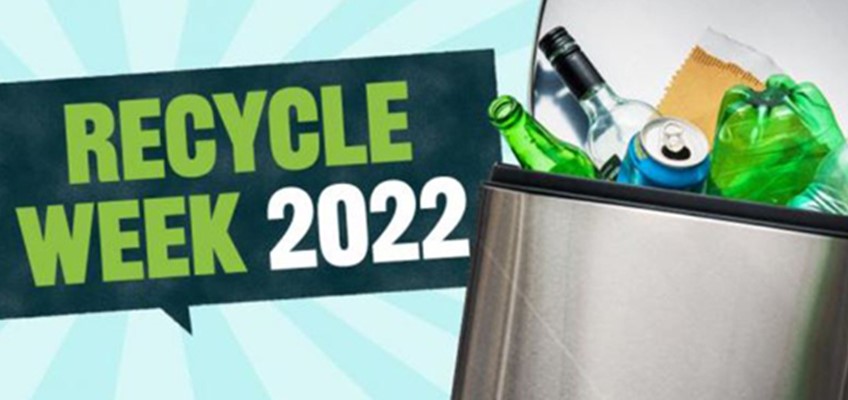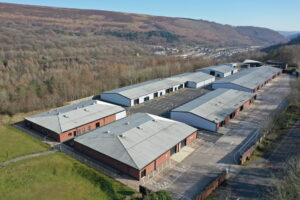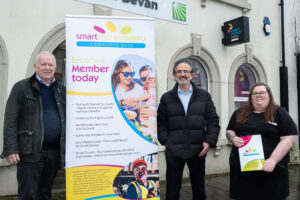Recycle Week 17th – 23rd October 2022

10 THINGS YOU CAN DO THIS RECYCLE WEEK TO HELP WALES BECOME WORLD LEADER
It’s well known that people in Wales are mighty recyclers. An impressive 95% of us now recycle regularly, up from 92% last year. We’re third best in the world and going for first. But there is a lot more we can do to help Wales achieve the top spot.
Currently, the biggest barrier to recycling in Wales is confusion about what can and can’t be recycled.
New research shows that, despite all our efforts, 72% of us are still putting at least one item into the rubbish bin when it can be recycled. And 83% of us throw items into the recycling that can’t actually be recycled at home. This contaminates the recycling collected, which lowers its quality and value.
That’s why, this Recycle Week, we’ve teamed up with Wales Recycles to let our residents know what to do with the 10 trickiest items from around the home. Let’s all play our part and get Wales to no.1.
- Empty perfume and aftershave bottles: Recycle at home
Most local authorities collect empty perfume and aftershave bottles as part of their local service, but only 47% of people in Wales recycle them.
Making glass items from recycled materials uses around 95% less energy compared to making a new glass bottle from scratch. Do your bit by recycling your empty perfume and aftershave bottles.
- Drinking glasses: Not at home
Drinking glasses can’t be recycled using the same process used for common glass bottles and jars, which means they can’t be collected to be recycled together. Make sure that broken glass is wrapped up safely before putting it in your bag or bin for non-recyclable waste. Alternatively, broken glass can be recycled with ‘rubble’ at most local recycling centres.
If you have any drinking glasses you no longer want but are in a good condition, donate them to your local charity shop.
- Food and drink foil pouches: Not at home
Food and drink pouches such as baby food, microwavable rice and pet food cannot currently be recycled at home. Why? They’re made using a mix of different materials, which may include aluminium metal, fibres and plastics, which currently makes them difficult to recycle.
Some of these items can be recycled at some front-of-store locations at participating supermarkets. Go to Wales Recycles’ Recycling Locator www.RecycleWeekWales.org.uk to find your nearest facility.
- Disposable nappies: Recycle at home (need to register for service).
Many councils in Wales offer a collection for disposable nappies and incontinence pads. The different materials that make up these items can be recycled into a variety of new products including fibre boards and acoustic panels for floors and walls, and as an engineering material used in road surfaces.
- Plastic bags and wrapping: Not at home
Most councils do not accept plastic bags and wrapping items like parcel bags, bread bags and frozen food bags because they can’t be recycled in the same way as plastic bottles, pots, tubs and trays so check locally first.
They are also accepted at some front of store locations at participating supermarkets. Go to the Recycling Locator www.RecycleWeekWales.org.uk to find your nearest facility.
- Foil: Recycle at home
All clean foil can be recycled and 69% of Welsh citizens already recycle it. Empty, rinse and scrunch foil items before popping them into your recycling, which will help them get through the sorting process without getting lost.
- Plastic toys: Not at home
Plastic toys are made from a material known as ‘hard plastic’, which can’t be recycled in the same way as plastic packaging such as drinks bottles or margarine tubs.
If you have plastic toys that still have life left in them, take them to a charity shop or donate to a local community group. If your plastic toys and games are beyond repair, it may still be possible to recycle some of the parts such as batteries and battery packs if you dismantle them.
Broken plastic toys or games can also be taken to your local recycling centre and recycled with ‘hard plastics’.
- Toothpaste tubes: Not at home
Toothpaste tubes are often made of different types of plastics, as well as a metal layer, which currently makes them difficult to recycle. Despite some tubes saying they’re recyclable, it’s difficult for crews to identify those that can and can’t be recycled when collecting your recycling, therefore it’s better for the overall quality of your recycling if you don’t recycle your toothpaste tubes at home.
They might be accepted at some front-of-store locations at participating supermarkets. Visit Wales Recycles’ Recycling Locator www.RecycleWeekWales.org.uk to find your nearest facility.
- Aerosols: Recycle at home
Most councils accept empty aerosol cans such as deodorant, dry shampoo and air freshener as part of their collection service. Metal is infinite, meaning it can be recycled again and again without losing any of its quality, so ensure you’re helping to preserve our precious resources by recycling all your empty aerosol cans.
- Cookware glass such as Pyrex: Not at home
Whilst Pyrex cookware is a type of glass, it has been specially treated in the manufacturing process to endure high temperatures, which makes it not-recyclable from home.
If you need to dispose of broken glass cookware from home wrap it safely in old newspaper or kitchen roll, or double bag before putting it in your non-recyclable waste bin or bag. Alternatively, it can be recycled with ‘rubble’ at most local recycling centres.
If your cookware glass isn’t broken – you simply no longer need or want it – why not take it to a local charity shop so that others can use it?
Not sure if any of these items can be recycled in your area? Visit Wales Recycles website to find out more about Recycle Week and to explore the Recycling Locator – just type your postcode to find out what to recycle where you live: www.RecycleWeekWales.org.uk





